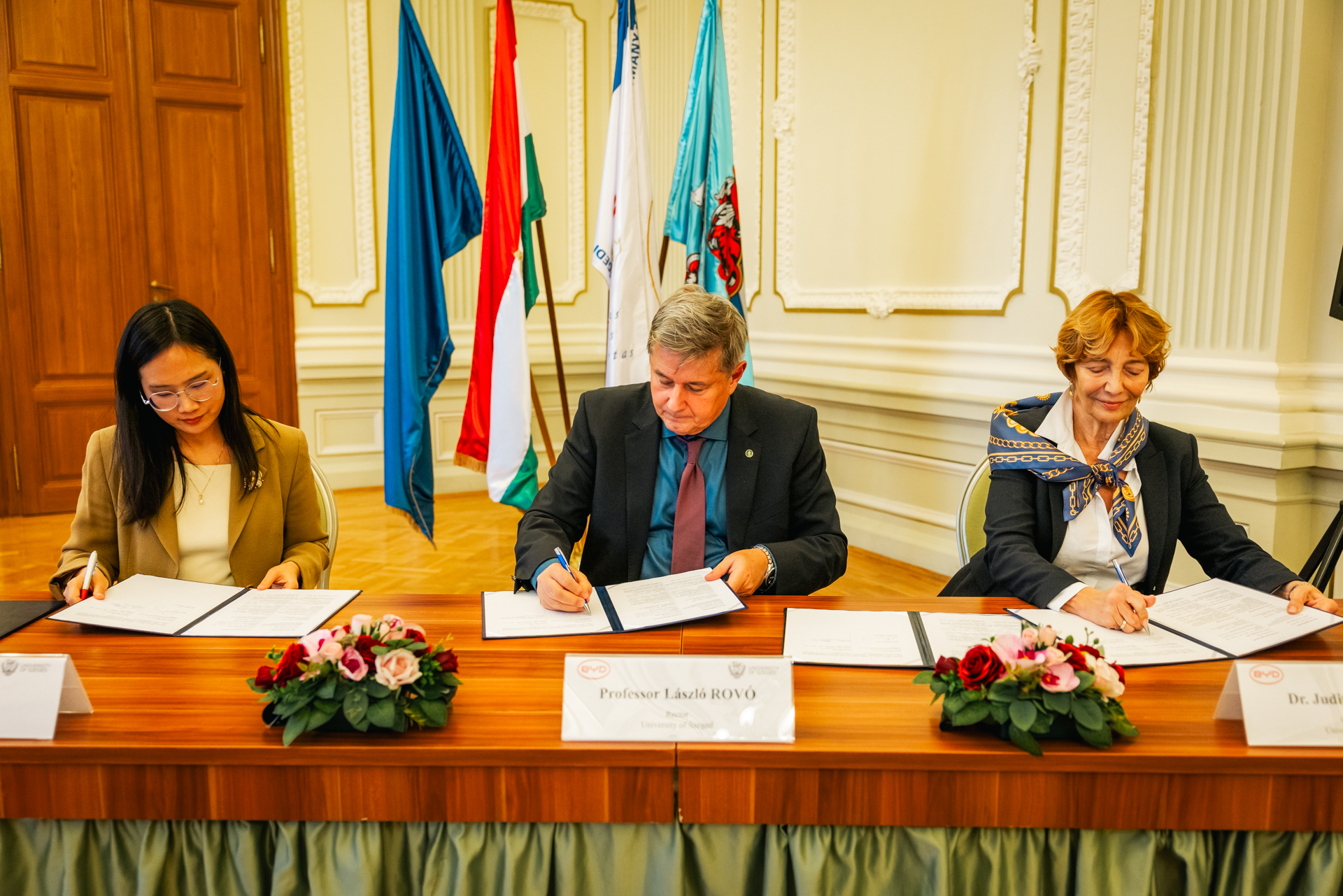Stratégiai jelentőségű együttműködési keretmegállapodást kötött a Szegedi Tudományegyetem és a BYD Auto Hungary Kft., amely új gyakornoki lehetőségeket nyit a hallgatók előtt, és erősíti az SZTE gazdasági-társadalmi beágyazottságát. A partnerség új szintre emeli az egyetem és a kínai autógyártó közös szakmai és kutatási törekvéseit.


